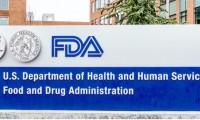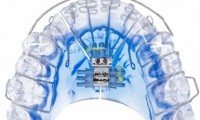-
Novartis’ Fabhalta approved by FDA as first oral monotherapy for rare blood disease PNH
- Source: drugdu
- 105
- December 8, 2023
-
ImmunoGen’s ADC Elahere wins FDA priority review for ovarian cancer
- Source: drugdu
- 104
- December 7, 2023
-
Elli Lilly Cancer Drug Lands Its Second FDA Approval This Year
- Source: drugdu
- 114
- December 6, 2023
-
Lilly’s Jaypirca blazes leukemia trail with FDA nod, fast confirmatory trial filing
- Source: drugdu
- 99
- December 6, 2023
-
FDA to investigate risk of T-cell malignancy from CAR-T cell immunotherapies
- Source: drugdu
- 106
- December 4, 2023
-
Intas Pharmaceuticals Hit with Another FDA Warning Letter, Put on Import Alert
- Source: drugdu
- 114
- December 2, 2023
-
Vivos receives FDA 510(k) clearance for oral devices to treat severe sleep apnea
- Source: drugdu
- 96
- December 2, 2023
-
FDA Accepts New Drug Application for Karuna Therapeutics’ Novel Schizophrenia Drug
- Source: drugdu
- 101
- December 1, 2023
-
Intas on import alert as FDA flags data manipulation, management failures in warning letter
- Source: drugdu
- 104
- December 1, 2023
your submission has already been received.
OK
Subscribe
Please enter a valid Email address!
Submit
The most relevant industry news & insight will be sent to you every two weeks.













